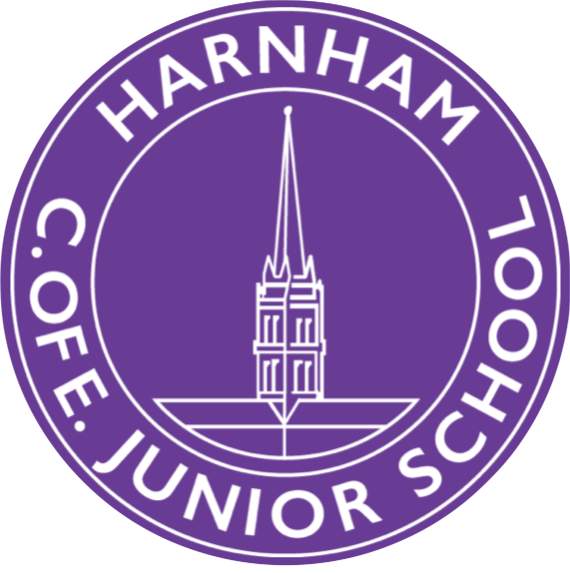Science
Harnham’s science curriculum aims to develop a sense of excitement and curiosity about natural phenomena and an understanding of how the scientific community contributes to the past, present and future.
-
Harnham’s science curriculum aims to develop a sense of excitement and curiosity about natural phenomena and an understanding of how the scientific community contributes to the past, present and future.
The curriculum aims for pupils to develop a complex knowledge of biology, chemistry and physics but also adopt a broad range of skills in working scientifically and beyond. Lessons are inclusive and meaningful so all pupils may experience the joy of science and make associations between their science learning and their lives outside the classroom. Studying science allows pupils to appreciate how new knowledge and skills can be fundamental to solving arising global challenges.
Our curriculum for science aims to ensure that all pupils:
● Children will develop knowledge alongside scientific skills across biology, chemistry and physics.
● They will explore familiar and unknown observations to challenge misconceptions and demystify truths through practical experiments
● Children will revisit topics throughout their time at the school ensuring progression by building on practical and investigative skills.
● Children will be thinking critically, with the ability to ask perceptive questions and explain and analyse evidence.
● Children will also develop scientific literacy through using wide-ranging, specialist vocabulary.
We want our learners to feel assured in the subject and able to use their skills to work logically and systematically through enquiries. This attitude and way of working is not only important for the subject but is transferable to all areas of the curriculum
-
Pupils at Harnham Junior School participate in two hours science per week. We follow the National Curriculum Science programme of study through a scheme of learning called Kapow.
Kapow Primary’s Science scheme is a spiral curriculum, with essential knowledge and skills revisited with increasing complexity, allowing pupils to revise and build on their previous learning. A range of engaging recall activities promotes frequent pupil reflection on prior learning, ensuring new learning is approached with confidence. The Science in action strand is interwoven throughout the scheme to make the concepts and skills relevant to pupils and inspiring for future application. Cross-curricular links are included throughout each unit, allowing pupils to make connections and apply their science skills to other areas of learning.
Each unit is based on one of the key science disciplines: biology, chemistry and physics. The National curriculum content has been grouped into six key areas of science to show progression throughout the school:
Plants, Animals, including humans, Living things and habitats, Materials, Energy, Forces and Earth and space.
Pupils explore knowledge and conceptual understanding through engaging activities and an introduction to relevant, specialist vocabulary. As suggested in Ofsted research review: science (April 2021), the Working scientifically skills are integrated with conceptual understanding rather than taught discretely to provide frequent but relevant opportunities for developing scientific enquiry skills. The scheme utilises practical activities that aid in the progression of individual skills and provide opportunities for full investigations.
Lessons incorporate various teaching strategies, from independent tasks to paired and group work, including practical, creative, computer-based and collaborative tasks. This variety means that lessons are engaging and appeal to those with different learning styles. All lessons are adapted to mee the needs of every learner to ensure that all pupils can access it and opportunities to stretch their learning are available when required.
Each year group has an optional exploratory unit called ‘making connections’ that delves beyond the statutory curriculum. This unit assimilates prior knowledge and skills to evoke excitement and provide an additional method of assessing scientific attainment.
-
The impact of Harnhams Science lessons is constantly monitored through both formative and summative assessment opportunities. Each lesson will be marked following the school assessment policy. Each unit has a unit quiz, which is used at the end of the unit to provide a summative assessment. Opportunities for pupils to communicate using scientific vocabulary will also form part of the assessment process in each unit. Following the unit assessment teachers record this on a tracker to identify gaps or misconceptions is science knowledge. This can then be addressed when covering the next unit following the spiral curriculum eg. Any missing or incorrect knowledge from Digestion in Year 4 can be covered again if required before starting Life cycles in Year 5 because they are both Animals including human’s unit.
The expected impact of following the Kapow Primary Science scheme of work is that pupils will:
● Develop early scientific thinking skills through hands-on exploration and sensory experiences in EYFS (Reception).
● Develop a body of foundational knowledge for the biology topics in the National curriculum: Plants; Animals, including humans; Living things and their habitats; and Evolution and inheritance.
● Develop a body of foundational knowledge for the chemistry topics in the National curriculum: Everyday materials; Uses of everyday materials; Properties and changes of materials; States of matter; and Rocks.
● Develop a body of foundational knowledge for the physics topics in the National curriculum: Seasonal changes; Forces and magnets; Sound; Light; Electricity; and Earth and space.
● Evaluate and identify the methods that ‘real world’ scientists use to develop and answer scientific questions.
● Identify and use equipment effectively to accurately gather, measure and record data.
● Be able to display and convey data in a variety of ways, including graphs.
● Analyse data to identify, classify, group and find patterns.
● Use evidence to formulate explanations and conclusions.
● Demonstrate scientific literacy through presenting concepts and communicating ideas using scientific vocabulary.
● Understand the importance of resilience and a growth mindset, particularly in reference to scientific enquiry.
● Meet the end of key stage expectations outlined in the National curriculum for science.

